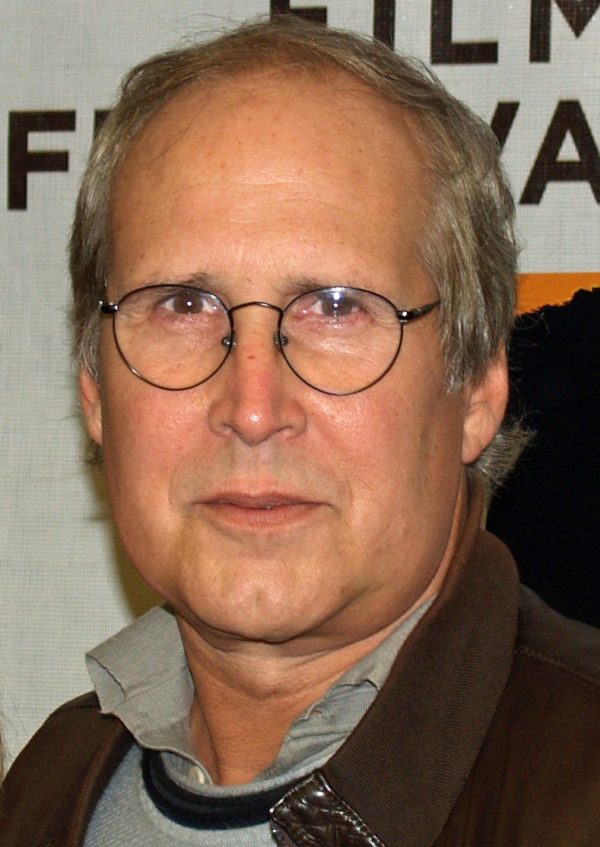One of the family traditions in my home at the holidays is watching Christmas movies: Everything from ‘How the Grinch Stole Christmas,’ to ‘Elf,’ to ‘Christmas Story’ and even the cheesy Hallmark movies. One of my favorites, however, is ‘National Lampoon’s Christmas Vacation.’ In the movie, Clark Griswold, played by Chevy Chase, is a middle-aged father just trying to get the holiday season “right”: Finding the perfect Christmas tree, trying to string the most impressive Christmas lights in the neighborhood, inviting extended family to stay with him and his wife and kids for the holiday, wanting to create the peace within the family, trying to cook the perfect Christmas dinner, and hoping to surprise his family with the best Christmas gift they’ve ever received. Even with all of the exaggerated scenarios and comical moments, Chevy Chase’s Clark Griswold is a very relatable movie character. In another relatable moment, Chevy Chase recently checked into an addiction treatment center for alcohol-related issues, according to his rep.
Chevy Chase’s Downplay Of Addiction
Chevy Chase, now 72-years-old has a past history with addiction: In the 1980’s he was admitted into a drug rehab center. It was reported that he was treated there for an addiction to prescription drugs. Years later, he told Esquire, “I never shot things up or freebased. I was pretty low-level when it came to drug use.” He was also quoted saying, “I checked myself in… after my nose started to hurt.” Now, in his recent rehab check-in, Chase’s reps have reported that he simply needed a “tune-up” for alcohol-related problems. He “wants to be the best that he can be,” the rep said, per TMZ. Instead of taking the opportunity to relate to the millions of people in active addiction, Chevy Chase has chosen to distance himself from the life-threatening disease of addiction and downplay his addiction treatment.
Addiction Is Addiction Is Addiction
The American Society of Addiction Medicine’s (ASAM) definition identifies five aspects of addiction:
- The inability to abstain consistently
- Impairment of behavioral control
- Cravings
- Diminished recognition of significant problems
- Dysfunctional emotional responses
When a person’s brain reacts in an addictive way to a substance, there is a high probability that their brain will react that way to another substance – which is why many people have found themselves picking up another drug when trying to quit another. The bottom line? Addiction is addiction. Just because one person’s drug of choice is alcohol, doesn’t mean their addiction is less of a disease than the person’s whose drug of choice is heroin. It’s still causing the brain to react in a certain way – and still a life-threatening illness if not treated. While different substances can harbor different effects on the brain and the body – those who are battling addiction, be it prescription drugs, meth, alcohol, heroin or so on – they are battling the same disease. Downplaying addiction as “low-level” or justifying it by saying “I don’t shoot anything up” is dangerous thinking. Those justifications and excuses are what keep people sick.
The Addiction Stigma
Stigma surrounding addiction isn’t anything new. In fact, the two have gone together hand-in-hand for so long, that stigma has become on of the most difficult aspects for families and individuals when it comes to facing and overcoming addiction. Our society imposes stigma and all of the damages that go along with it on those who are addicted. Stigma is so heavily rooted in our communities, that despite scientific evidence that addiction is a chronic yet treatable diseases- there is still a strong belief that addiction is a moral failing or character flaw. Police departments post pictures on social media of overdosed parents – and people behind computer screens come out en mass to tear apart the parents, rather than work towards solutions. Celebrities known to be suffering from drug or alcohol addiction are hounded and exploited by paparazzi, rather than being given privacy and support as they make life-saving decisions to enter rehab. Stigma keeps us silent. Stigma makes us create excuses. Stigma keeps us sick. When I read the headlines that Chevy Chase was checking in for a “tune-up” for alcohol problems, I’ll admit, I didn’t immediately understand what that meant. When we suffer from addiction, don’t we need a daily tune-up? Aren’t there tools and daily practices that we put into place to keep ourselves healthy? Recovery from addiction isn’t a one-time deal; it’s for life. We require a daily tune-up. But instead, a “tune-up” was just a softer way for his reps to indicate that Chevy Chase had a recurrence of his disease and needed treatment to save his life. His reps had a notion that if they didn’t minimize the severity of the disease of addiction, he would lose fans and support and future deals. They caved to the stigma.
Supporting Chevy Chase
For over 20 million Americans suffering from substance addiction, Chevy Chase has a very relatable story: His addiction isn’t a choice or a moral failing. It’s a disease. Those closest to him have done their best to minimize his relapse, and he has downplayed the severity of it, as well. Chevy, we support you in your decision to get help for your addiction and hope that you find hope and healing in your treatment. We know that recovery is possible and know that you have what it takes to achieve it. We’re with you. We also hope that one day, you’ll be able to come forward as the relatable man, who is a household name, and help to break the stigma of addiction by calling it what it is – and helping others to face it head on. You’re not alone.


